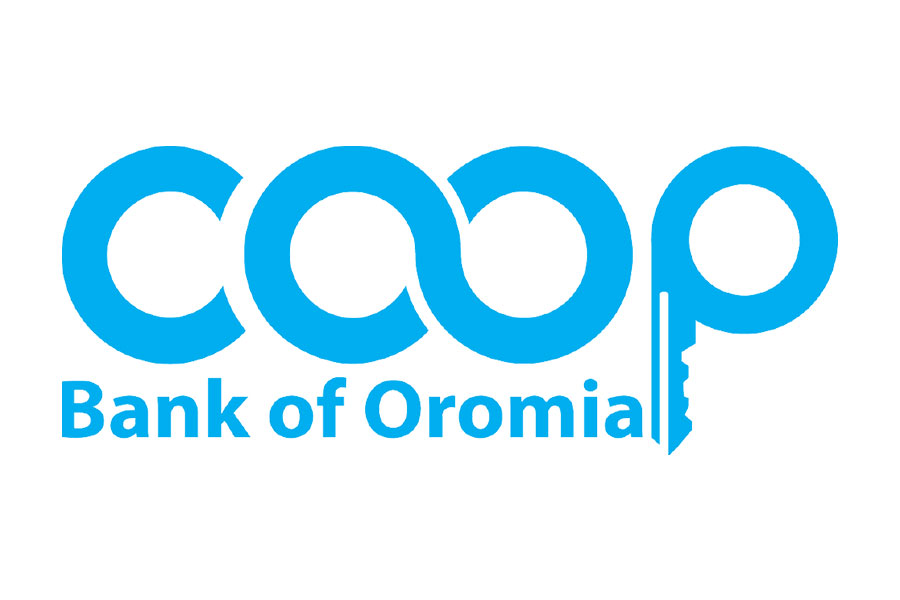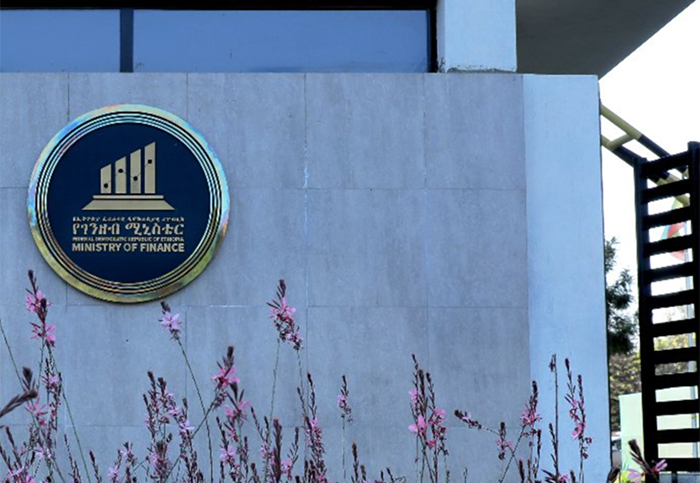
Nov 30 , 2019
By Abdulmenan M. Hamza
In an inflationary environment, injecting more liquid resources into private banks risks further inflation. But that risk can be minimised through the use of appropriate monetary policy if handled correctly by a capable and independent central bank, writes Abdulmenan Mohammed, a doctoral student at Edinburgh Business School and a chartered certified accountant with more than 19 years of experience in audit, consulting and accounting in Ethiopia and the UK.
Last week, the National Bank of Ethiopia (NBE) announced that it lifted the requirement imposed on private banks to purchase NBE bonds that accounted for 27 percent of their gross loan disbursements for the past eight years. This requirement is probably the most controversial banking directive of the past decade.
The directive was formulated within the developmental state paradigm that the ruling front has pursued since 2005 but now is undergoing reform. One of the assumptions of the directive is that as the financial sector in developing countries is riddled with imperfections, the state interferes in the pricing and resource allocation of credits to foster industrialisation.
As result of the directive, 116 billion Br was channeled to the NBE from private banks so that the funds would be used by the Development Bank of Ethiopia (DBE) for industrial and agricultural loans. Out of this total, 86 billion Br is still outstanding. By the end of March 31, 2019, the DBE managed to receive 52.8 billion Br from the NBE. Out of this, a considerable sum was invested in low-interest treasury bills.
Credit policy is one of the areas that the developmental state model has seriously failed in Ethiopia. It has increased the indebtedness of state-owned enterprises and exposed the Commercial Bank of Ethiopia (CBE) to massive credit risks. The troubles of the DBE is another manifestation of the pitfalls of the credit policy. The DBE is characterised by inefficient management of resources, massive losses and huge non-performing loans.
Several measures are being taken to rectify the damage caused by unbridled borrowing and ill-thought credit policy. The repeal of the bond purchase directive is a step in the right direction. Although the fact that the lifting will increase the liquid resources of the banks, precautions should be taken for its consequences.
The lending capacity of private banks will increase soon. This will allow private banks to disburse more loans and advances and could drive lending interest rates down. More lending capacity coupled with lower interest rates will increase access to finance and foster private sector development, which is the lynchpin of the economic reforms that are being undertaken.
It is a glaring fact that the banking sector in Ethiopia is riddled with many problems. Access to capital is a binding constraint to firms’ growth as the financial system is underdeveloped. Risky and innovative ventures, less profitable but socially attractive projects, and micro and small enterprises that are essential for industrialisation find it hard to obtain funding from a market-based banking system. Increased lending capacity of private banks is not enough to rectify the failures of private banks in supplying finance to industrial ventures, novel ideas and small businesses. Improving the institutional and information environment and incentivising the private banks to supply long-term finances is essential for private sector industrial development and expanding access to finance. The central bank’s discounting window can be used as an effective means of incentive. Providing cheap credit to private banks that are involved in long-term lending encourages them to supply project finance. This mechanism needs to be used without compromising the monetary stability of the country.
The DBE emerged as the major policy bank due to the prevailing economic paradigm. With economic reforms underway and the funding source of the DBE curtailed, the role of the DBE should be redefined. The redefinition of the role needs to incorporate restructuring of the policy bank and the sources and structure of funding.
In a situation of more than ten banks under formation, increasing lending capacity of private banks will make the competition in the banking industry so intense that loans and advances might be given to lower quality borrowers. Reduced loan quality will cause trouble in the financial sector. As much competition in the banking industry is important, the stability of the sector is very crucial. There is no time for the National Bank of Ethiopia (NBE) to be as vigilant as now. It should proactively monitor the competitive situation of the industry to make it stable.
With several signs of reducing the state role in the economy and the promise of a gradual scaling down of borrowing from the NBE, the increasing liquidity level of the private banks could be used as an opportunity to make the treasury bill market attractive, so that any excess liquid resources of the banking system would be used for financing budget deficits.
Creating a vibrant treasury bill market requires making the returns attractive and reducing the dominance of a few government agencies in the market. Giving the government agencies the discretion to invest in other financial instruments would make the treasury bills market more competitive. A competitive treasury bills market will surely raise the interest rates that have been kept artificially low. Improved returns will attract private banks and other players.
In an inflationary environment, injecting more liquid resources into private banks risks further inflation. With the use of appropriate monetary policy tools, the risk of inflation can be minimised. This requires institutional independence and analytical capability. The economic reforms should emphasise creating an independent and capable central banking system.
PUBLISHED ON
Nov 30,2019 [ VOL
20 , NO
1022]


Sponsored Contents | Jul 24,2022

My Opinion | Jul 30,2022

Commentaries | Jul 17,2022


Radar | Jan 01,2024

Fortune News | Mar 16,2019

Advertorials | Aug 05,2025

Radar | Jan 15,2022

Radar | Oct 11,2020

Fortune News | Aug 14,2021

Photo Gallery | 171567 Views | May 06,2019

Photo Gallery | 161808 Views | Apr 26,2019

Photo Gallery | 151542 Views | Oct 06,2021

My Opinion | 136305 Views | Aug 14,2021





Dec 22 , 2024 . By TIZITA SHEWAFERAW
Charged with transforming colossal state-owned enterprises into modern and competitiv...

Aug 18 , 2024 . By AKSAH ITALO
Although predictable Yonas Zerihun's job in the ride-hailing service is not immune to...

Jul 28 , 2024 . By TIZITA SHEWAFERAW
Unhabitual, perhaps too many, Samuel Gebreyohannes, 38, used to occasionally enjoy a couple of beers at breakfast. However, he recently swit...

Jul 13 , 2024 . By AKSAH ITALO
Investors who rely on tractors, trucks, and field vehicles for commuting, transporting commodities, and f...

Oct 4 , 2025
Eyob Tekalegn (PhD) had been in the Governor's chair for only weeks when, on Septembe...

Sep 27 , 2025
Four years into an experiment with “shock therapy” in education, the national moo...

Sep 20 , 2025
Getachew Reda's return to the national stage was always going to stir attention. Once...

Sep 13 , 2025
At its launch in Nairobi two years ago, the Africa Climate Summit was billed as the f...

Oct 5 , 2025 . By NAHOM AYELE
In Meqelle, a name long associated with industrial grit and regional pride is undergo...

Oct 5 , 2025 . By BEZAWIT HULUAGER
The federal government is set to roll out a new "motor vehicle circulation tax" in th...

Oct 5 , 2025 . By NAHOM AYELE
The Bank of Abyssinia is wrestling with the loss of a prime plot of land once leased...

Oct 5 , 2025 . By BEZAWIT HULUAGER
The Customs Commission has introduced new tariffs on a wide range of imported goods i...